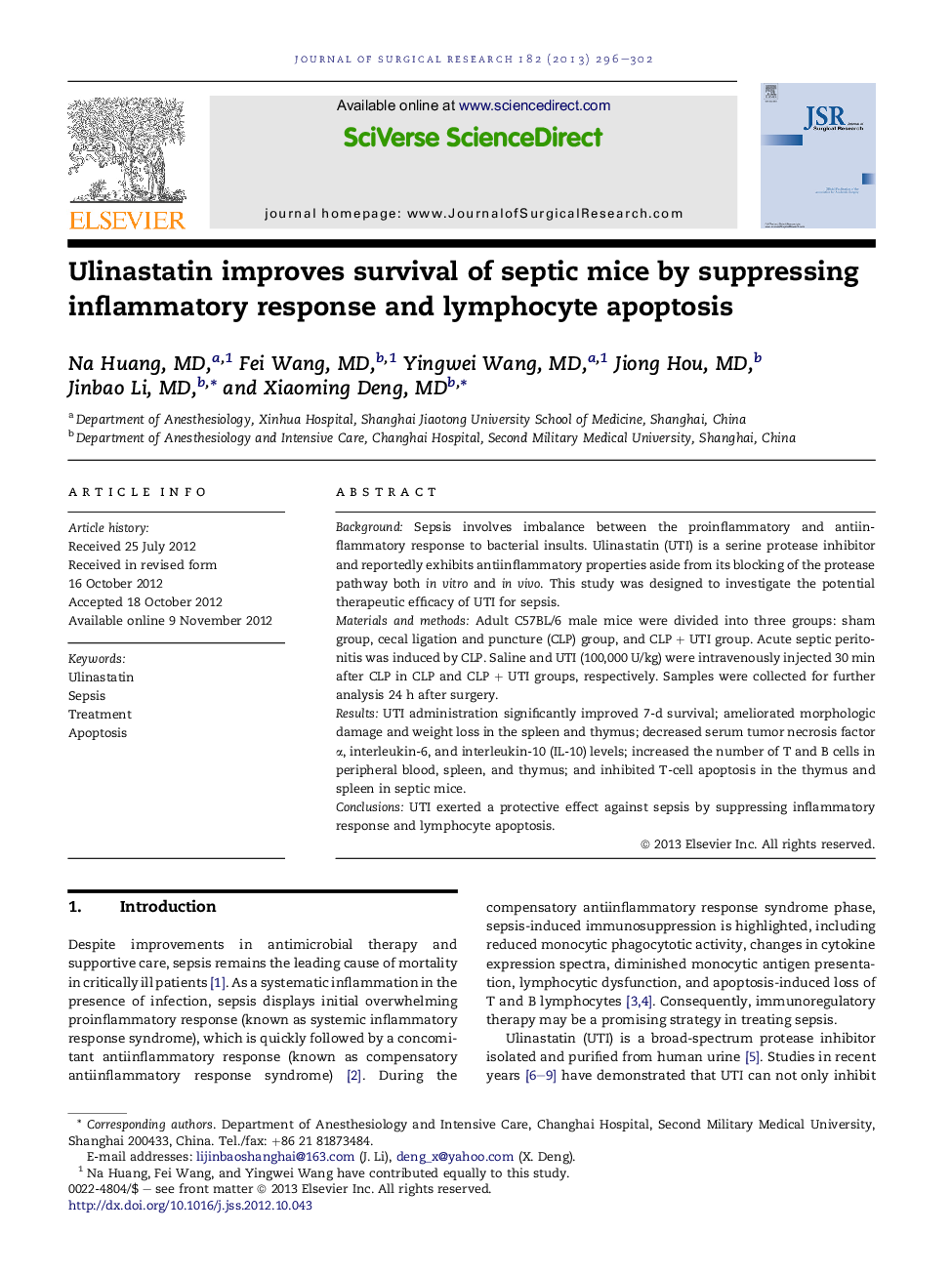| Article ID | Journal | Published Year | Pages | File Type |
|---|---|---|---|---|
| 4301027 | Journal of Surgical Research | 2013 | 7 Pages |
BackgroundSepsis involves imbalance between the proinflammatory and antiinflammatory response to bacterial insults. Ulinastatin (UTI) is a serine protease inhibitor and reportedly exhibits antiinflammatory properties aside from its blocking of the protease pathway both in vitro and in vivo. This study was designed to investigate the potential therapeutic efficacy of UTI for sepsis.Materials and methodsAdult C57BL/6 male mice were divided into three groups: sham group, cecal ligation and puncture (CLP) group, and CLP + UTI group. Acute septic peritonitis was induced by CLP. Saline and UTI (100,000 U/kg) were intravenously injected 30 min after CLP in CLP and CLP + UTI groups, respectively. Samples were collected for further analysis 24 h after surgery.ResultsUTI administration significantly improved 7-d survival; ameliorated morphologic damage and weight loss in the spleen and thymus; decreased serum tumor necrosis factor α, interleukin-6, and interleukin-10 (IL-10) levels; increased the number of T and B cells in peripheral blood, spleen, and thymus; and inhibited T-cell apoptosis in the thymus and spleen in septic mice.ConclusionsUTI exerted a protective effect against sepsis by suppressing inflammatory response and lymphocyte apoptosis.
